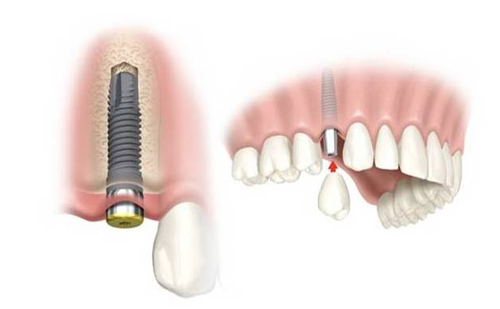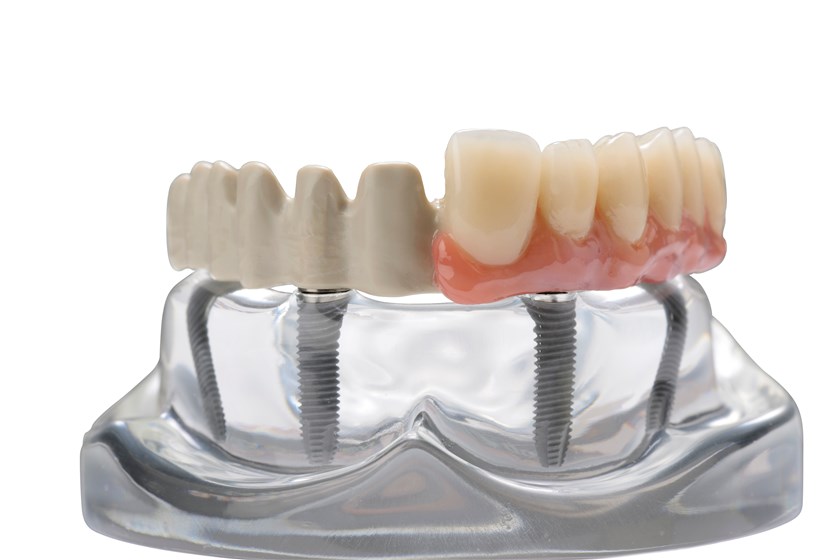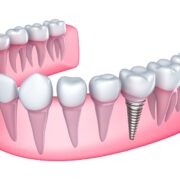If you have lost a lot of bone in your jaw and adjacent areas from missing teeth, then you may not be able to use dental bridges or the other common dental implant options to replace your missing teeth. As a result, you will need to look into getting something like a bone grafting procedure or an artificial implant with a prosthetic tooth attached on top of it instead. The thing is that most people don’t expect to develop severe bone loss until they are much older. However, some situations can accelerate bone loss much sooner than expected. If you’re suffering from severe bone loss due to gum disease, age, genetics, trauma, or other factors, read on to learn more about the pros and cons of getting an artificial implant as opposed to another type of dental restoration.
The basics of dental implants
A dental implant is a surgical option for replacing one or more teeth. This is typically done when you are missing teeth but want to maintain your natural teeth as long as possible. Some people opt to get dental implants because they want a more youthful appearance, better chewing power, or because they just want to improve their overall oral health. Dental implants are most effective in patients who have at least some bone present to help support the implant. Patients who have severe bone loss will often benefit from a different type of implant called an implant-assisted or free-form implant.

Dental implant pros and cons
When it comes to dental implants, there are both advantages and disadvantages. First, dental implants are excellent at supporting replacement teeth in the long term. In fact, dental implants have a success rate of over 95% when it comes to retaining the replacement tooth for 10 years or more. However, dental implants also have a few drawbacks.
First, there is a small risk of infection at the implant site. Second, dental implants can be expensive, and many people have to pay for the entire cost out of pocket. Third, the insertion process for dental implants is relatively invasive. Plus, dental implants require a longer healing time than some other restoration options.
Benefits of implants for severe bone loss
For patients with severe bone loss, dental implants can be a great way to replace missing teeth. This is because they are surgically placed into the jaw. As a result, dental implants are able to help support replacement teeth in a manner similar to natural teeth. This can make it easier to eat, speak, and maintain proper oral hygiene as compared to other restoration options for patients with severe bone loss. In addition, implants also have longevity.

This means that they can last for many decades when cared for correctly. As a result, dental implants can save patients money over the long term compared to other restoration options. Implants are particularly good at retaining replacement teeth in the long term when they are placed in areas with some amount of bone remaining. This can help to support the implant and make the overall replacement easier.
Drawbacks of dental implants for severe bone loss
As with any dental restoration option, dental implants are not right for every patient. In particular, severe bone loss makes it difficult to get dental implants in many cases. In order to get dental implants, patients need sufficient bone mass in the jaw to support the implant. This is called bone stock, and it is what makes it possible for the implant to stay in the mouth without the risk of breaking or moving out of place.
If a patient has low bone stock, then they may not be able to get implants to replace missing teeth due to insufficient bone mass. One major drawback of dental implants for patients with severe bone loss is that it can make it harder to regenerate bone mass in the jaw. This is because the implant acts as a foreign body in the mouth. As a result, it can cause the jaw to form around it rather than regrow.
Should you get an artificial implant?
If you have severe bone loss, then you may want to talk to your dentist about dental implants as a dental restoration option. However, you should know that it can be difficult to get dental implants in patients with severe bone loss. This is because the implant site will need to be stable in the mouth in order to support the replacement tooth. Unfortunately, it can be difficult to get good stability in patients with severe bone loss.

There are a few steps that can help you to get dental implants even if you have severe bone loss. First, you will need to go through a period of accelerated bone growth. This can help to build up the surrounding bone in order to support the implant. You will likely also need to get a bone grafting procedure to help add more bone to the jaw. This will help to make the implant site stable enough to support the replacement tooth.
Other strategies to preserve your bone mass
If you have severe bone loss and cannot get implants, you may want to try other strategies to preserve your bone mass. For example, you may be able to use a removable dental prosthesis. This is a false tooth that is attached to a dental retainer. A retainer is worn around your gums to keep the prosthesis in place. Or, you could try a fixed partial denture or a fixed bridge.
These are types of fixed dental prostheses that replace some or all of your missing teeth. However, you will want to make sure to take good care of your remaining natural teeth in order to prevent cavities and other oral health problems. You may also want to try a soft diet if you have severe bone loss. This can help to take some pressure off of your remaining bone mass while you are healing from a bone graft procedure.
Final words
If you are suffering from severe bone loss, then implants can be a great way to replace missing teeth. However, patients with severe bone loss often have difficulty getting dental implants due to insufficient bone mass. Fortunately, there are a few things that you can do to help increase your bone mass. You can also talk to your dentist about other dental restoration options in case dental implants are not a good option for you. If you have any questions about dental implants for severe bone loss, then make sure to reach out to your dentist. They will be happy to discuss your specific situation and suggest possible treatment options.






